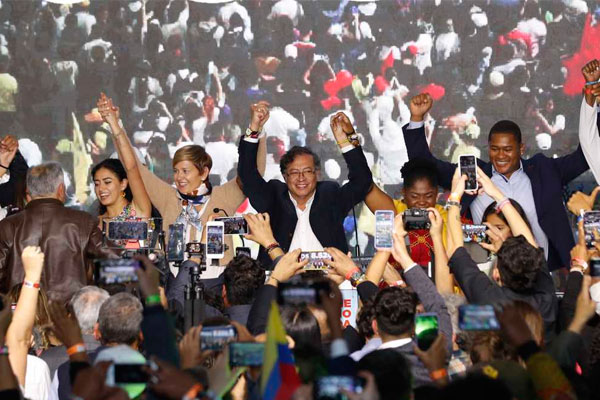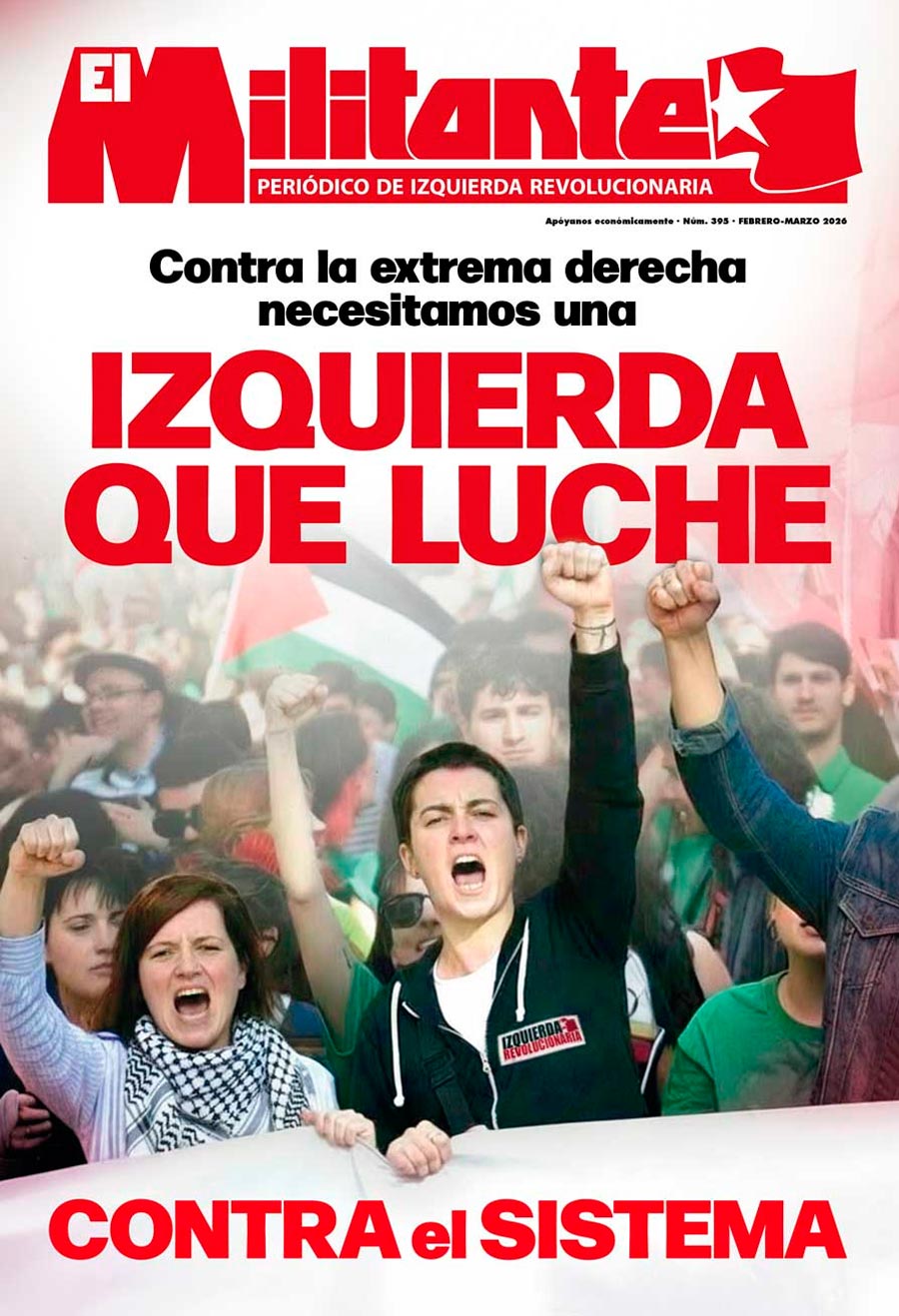Last June the 19th, a left-wing coalition managed to win the presidency of Colombia for the first time ever. Gustavo Petro became the most supported candidate in history with 11,281,013 million votes, 50.4%, surpassing the reactionary Rodolfo Hernández by three points, the candidate supported by the Uribism, the bosses and the overwhelming majority of the media, who reached 10,580,412 million ballots, 47.3%.
Immediately after the results were known, millions of people, especially the youth, took the streets in rallies and spontaneous demonstrations to celebrate the victory of Petro and Francia Márquez, who will be the country's first black vice president. In Soacha, one of the poorest areas of Bogotá, a human tide flooded its main artery to the cry of “we made it”, and the same thing happened in Cali and in cities and towns throughout the country.
This historic victory, with a record turnout of 58%, represents a new turning point in the class struggle in Colombia and reflects the leap in the consciousness of millions of young people, workers and peasants, as a result of the growing social struggle of the last years, and above all, of the revolutionary uprisings experienced in 2019 and 2021 against the Government of Duque and the capitalist and landowner elite.
For months the working class and youth showed their determination to go all the way through. This burning desire for change is what has pushed Gustavo Petro to the presidency.
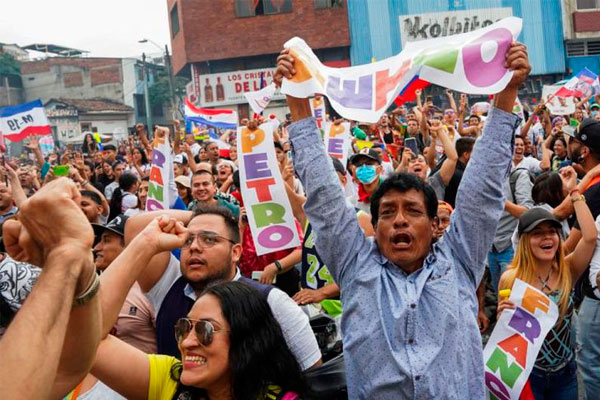
The oppressed mobilize against fraud and reaction
The first round of the presidential elections had a bittersweet taste. Although Petro won comfortably, advancing to the second round, the sum of the right-wing candidates exceeded 52% of the votes. This, together with the possibility of massive fraud if the final results were tight, threatened his victory.
The possibility that a far-right reactionary and misogynist like Rodolfo Hernández could win the elections spurred the masses. In the eyes of millions, the only guarantee for victory was to actively spread the electoral mobilization and organize militantly to prevent fraud. Throughout the Colombian geography, committees were created to monitor the polling stations and avoid any pressures, and to transport voters to the polling stations.
There have been published numerous images of peasants and indigenous people in groups traveling for hours on foot or by canoe to reach their polling stations. The mobilization of the Front Lines, filled up by the youth, has also been reactivated in order to defend the electoral results in the working class neighborhoods. A mobilization that has led the ruling class to rule out fraud due to the fear of provoking a new revolutionary uprising.
Now, after this unappealable victory, the bourgeois media try to distort it by pointing out that it has been a consequence of Petro's and the Historical Pact’s moderate discourse, which has allowed him to receive the support of sectors of the conservative middle classes. But it has been precisely in the most beaten and radicalized areas where the growth of the vote has been decisive.
This is the case, for example, of Chocó, Nariño or Cauca. In these regions, where support for Petro exceeded 80%, participation increased by 10 points. In large cities such as Cartagena and Barranquilla, where participation increased by 5 points, the vote for Petro increased by 34% and 40%, respectively, and in Bogotá and Cali, where participation increased between 2 and 3 points, Petro increased its votes by 24% and 27%, exceeding 60% of the votes in all of them.
In all these cities the National Strike and the revolutionary uprisings had enormous power. On the other hand, in a traditional bastion of Uribeism, Antioquia and its capital Medellín (the second largest city in the country) the mobilization of traditionally very conservative middle classes, together with clientelism, threats and territorial control by narco-paramilitarism, allowed Hernández to impose himself by collecting the practice totality of the vote of the Uribist Fico Gutiérrez. Even so, political polarization was reflected in a 35% increase in votes for Petro in Medellín among sectors that abstained in the first round, and his landslide victory in the north of the state (more oppressed and hit by violence). This shows that it is possible to defeat the right, even in its traditional fiefdoms, but in order to do so it’s mandatory to delude and mobilize the masses with a revolutionary policy.
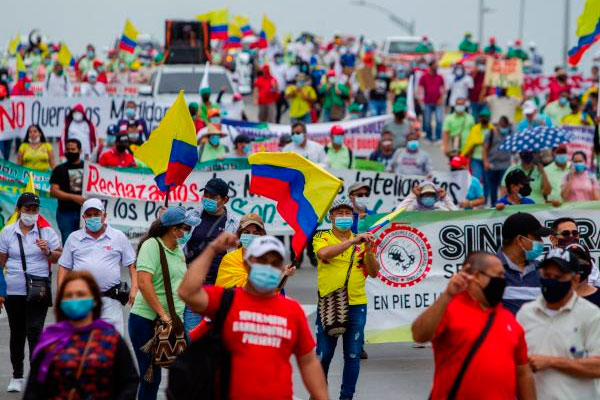
A triumph despite the hesitations of Petro and the Historical Pact
As we already pointed out in our analysis of the first round https://www.izquierdarevolucionaria.net/index.php/internacional/america-latina/13174-elecciones-presidenciales-en-colombia-petro-gana-la-primera-vuelta-pero-la-ultraderecha-avanza-y-amenaza-con-hacerse-con-la-presidencia , this popular and class victory is even more important considering Petro's vacillations and his renunciation of the most radical demands of the National Strike movement. In order to appear as an acceptable leader for the business elites, his defense of social peace and capitalism, and his statements whitewashing Rodolfo Hernández, reduced his electoral support in the first round. Something that was seen especially in abandoned peripheral areas, where the left is strong but where participation was below 45%.
During the second round campaign, both Petro and the main leaders of the Historical Pact have insisted on this line, softening their proposals even more, weaving pacts with traditional right-wing politicians, and building bridges towards his rival, Rodolfo Hernández, even proposing a “Great National Agreement”.
In spite of everything, the virulent campaign against Petro and the Historical Pact has not ceased, demonstrating that the Colombian bourgeoisie, the landed oligarchy, the army and the state apparatus will never be able to reconcile with the left, and above all with the masses in struggle that have made this triumph possible. They are well aware that the problem is not Petro's program, but the inalienable aspirations of the millions who have supported him.
Petro's approach reflects the absence of a comprehensive vision of the situation. During the final stretch of the campaign, he and Francia Márquez promised before a notary not to carry out any expropriation. A commitment that, if maintained, will prevent him from carrying out one of his most popular proposals, that of agrarian reform, in a country where 1% of the population owns 81% of the land. Petro states that he wants to democratize, not expropriate! But how will it be possible to distribute the land democratically without expropriating that 1% of large landowners, multinationals and speculators?
And the same thing happens with the pension reform in a country dominated by private funds where only 28% of those over 60 can retire. Not to mention how to end starvation wages and labor informality, drug trafficking and organized crime, the lack of education and public health… without touching the power of the banks and the big monopolies, or the army and the paramilitaries.
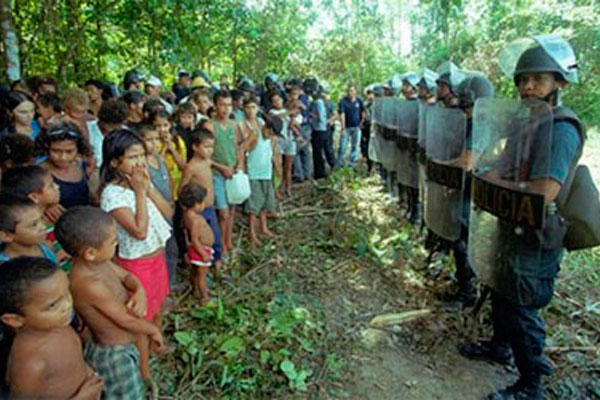
The attitude of Petro and his collaborators in the face of the serious threat of fraud was a whole declaration of principles. Instead of calling to defend the vote with mass mobilization, the leaders of the Historical Pact gave up beforehand to fight the battle that many activists and committees from below were already organizing. This was stated in an interview in El País by Francia Márquez, three days before the elections: “we have concerns that they will fraud us. Sadly, we cannot change that, and we will have to accept the result that comes out even if we don't like it”.
Democratic capitalism or fight for socialism?
The high hopes generated by this victory and the expectations of millions of workers and young people will collide with the minimum program proposed by Petro and the Historical Pact. Something that was seen on the election night itself.
Before an auditorium packed with Bogotá youth and activists, Petro called for social peace and conciliation with the right. The high point came when the president-elect said “we are going to develop capitalism in Colombia”, which was answered with a resounding and unanimous “NOOOO!”. The rejection was so evident that Petro himself began a very unconvincing theoretical justification: “not because we adore it, but because we have to overcome feudalism in Colombia. [...] Forms of democratic capitalism will come out.”
But Colombia today is a country with developed capitalism, whose bourgeoisie is fully linked to big international financial capital. The economy is run by a conglomerate of big banks and capitalist monopolies. The landowners and the multinationals own the bulk of the land, brutally exploit the peasants, and ruin the small producers. In turn, the narco has become yet another sector of the Colombian bourgeoisie totally merged with finance capital, which launders its money, and with the state apparatus.
The unproductive, parasitic and speculative nature of the Colombian bourgeoisie is not due to a supposed backwardness of capitalism, much less to a non-existent feudalism. It is the consequence of its fit into the international division of labor and its dependence on imperialism. Any measure to develop production or distribute land and wealth will collide directly with the reactionary and parasitic nature of the ruling class. In the imperialist and reactionary phase of capitalism, only the working class with a socialist program can carry out bourgeois-democratic reforms such as land distribution*. Either the workers seize power and carry out the expropriation of the capitalists and landlords, or any progressive social reform is impossible.
Petro's desire to improve the living conditions of the masses without touching the interests of the capitalists is an impossible attempt to square the circle, just as we are seeing in Chile with Boric or as we have seen with UP in the Spanish state.
In a context of global capitalist recession, any minimal reform will face active resistance from the oligarchs and the state apparatus. In this way, Petro will be greatly conditioned to comply with his minimum program, and even more so if he implements a Great National Agreement or if he incorporates ministers from the right into his government.
This electoral victory represents a step forward and increases the confidence of the oppressed in their own forces, but the capitalists, the reactionaries and the extreme right have not been defeated at all. One of the measures that the movement is already demanding is the freedom of the political prisoners, many of them young people who organized the Front Lines during the revolutionary days of 2021 and that Petro has promised to free. The same goes with the dissolution of the violent riot police squads and the persecution of paramilitary groups, which reappeared in 2021 to confront the popular insurrection.
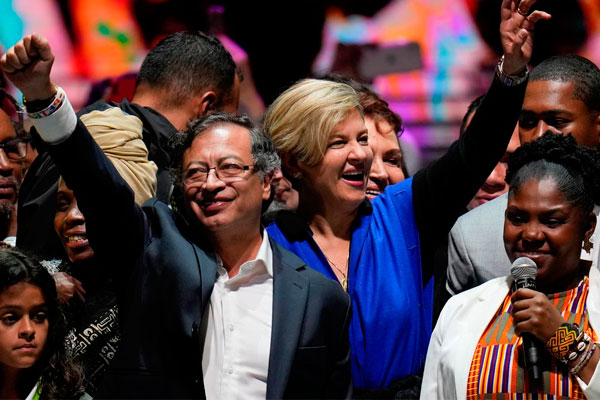
But together with these measures, it is necessary to implement a program that can solve the very serious problems that Colombians suffer, beginning with hunger, which affects half the population, and continuing with the need for public education and health, decent wages and stable jobs, etc. If Petro and the Historical Pact choose to manage capitalist misery they will not be able to solve any of these problems and will sow great disappointments.
For this reason, and beyond Petro's electoral victory, it is necessary to increase the capacity of organization and mobilization to demand that the Government comply with the demands of the National Strike and of all those who confronted Duque and state repression. And complying means applying energetic socialist measures that include the expropriation of banks, large companies and large estates under the democratic control of workers and peasants. Only in this way can we definitively defeat Uribism and reaction, and only in this way can we achieve a socialist, just, democratic and egalitarian society.
---------
⋅To delve into this aspect, we recommend our review of Leon Trotsky's The Permanent Revolution as well as reading the book, available in the Federico Engels Foundation catalogue.
Leon Trotsky. The permanent revolution https://www.izquierdarevolucionaria.net/index.php/historia-teoria/libros/11687-la-revolucion-permanente-de-leon-trotsky-3






